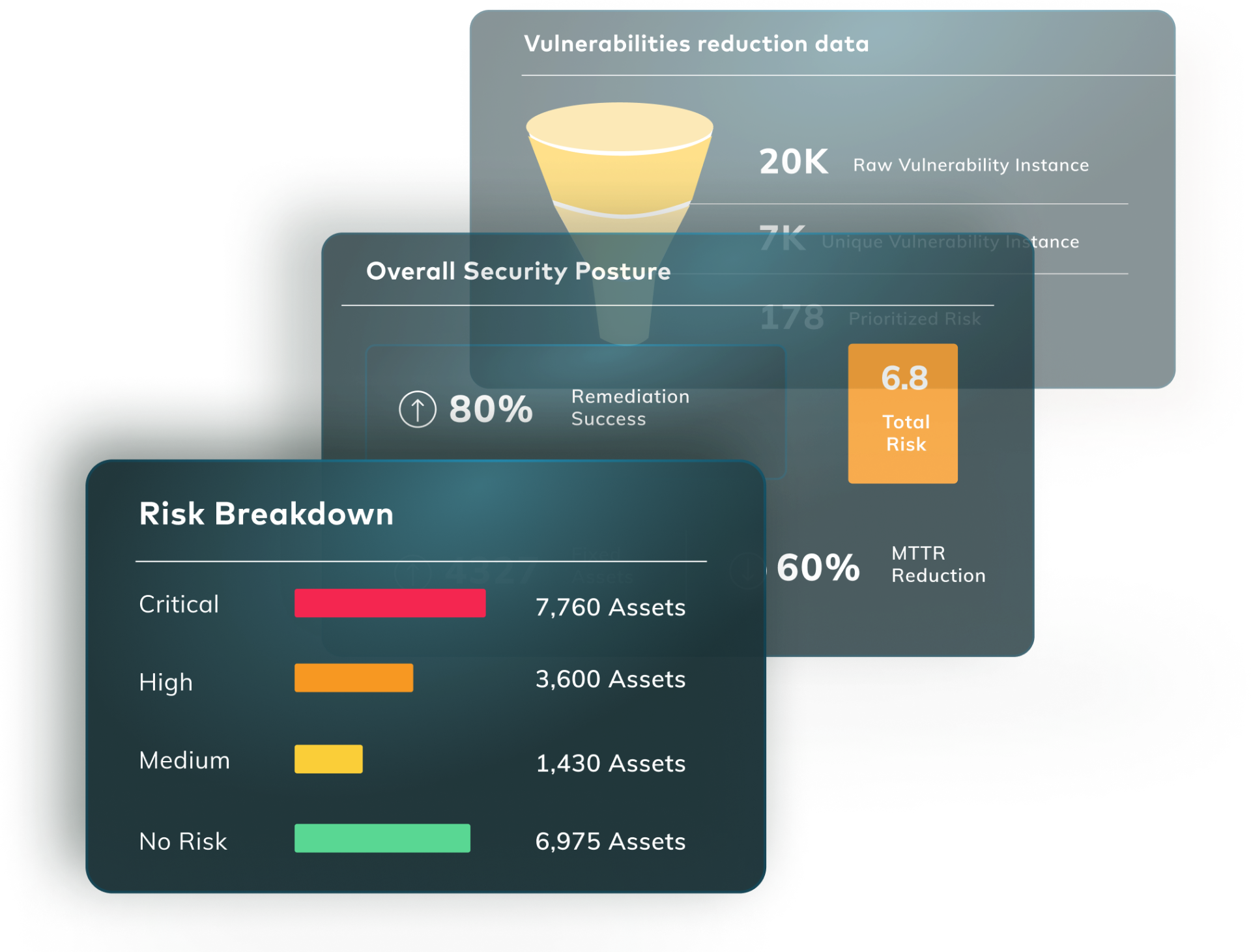Cybersecurity threats are growing and will only continue to rise in our ever-evolving digital landscape. With increasing levels of remote work and dependence on digital platforms, maintaining a good cybersecurity posture has never been more important. The question is–why, with so much awareness, do businesses fail to target their vulnerabilities and what can we do to fix that? Read on to see how to solve vulnerability problems.
Challenges that cause vulnerabilities to remain un-remediated:
Not enough time
There is simply not enough time in a day to keep up with vulnerabilities. As networks become more advanced due to the nature of remote work, the workload required to mitigate risk has increased too. IT operations can easily fall behind, leaving a number of previously identified vulnerabilities unpatched.
Networks are constantly changing
Keeping up with constantly changing networks is tricky. There are always new IT systems and platforms that help keep a business running. These changes come with new vulnerabilities being discovered each month, adding to an already heavy workload. The bigger the network, the higher the chances of vulnerabilities being left unpatched.
Gaps in specialized knowledge
Do you have enough team members that are only working in areas they are specialized in? Having someone dedicated to only firewalls or software can prevent vulnerabilities from slipping through the cracks. Without highly skilled product knowledge, problems will likely emerge.
Poor prioritization of threats
Inadequate prioritization represents an endless cycle of failure. Many organizations tend to head straight to remediation, skipping threat prioritization—a crucial part of the vulnerability management process. This results in the unnecessary allocation of resources to fixes that don’t require attention, while the more critical threats get neglected.
Poor team organization and structure
Poor team performance is a critical failure that many companies encounter within their IT teams. Without setting long and short-term goals and defining clear policies, many vulnerability management programs fail to operate.
Poor daily cyber hygiene
Cyber hygiene is like personal hygiene: bad habits make you more susceptible to illnesses. In cybersecurity, bad practices can lead to greater susceptibility to cyber attacks. Without a dedicated maintenance period, enterprises fail to allocate fixes when they need to.
Solutions:
- Scanners and continuously monitoring — Stay one step ahead of cyber attacks with network security scanners, which are valuable tools for identifying and reporting vulnerabilities in your system. As companies become more dependent on technology, it is essential to constantly monitor your networks to pinpoint vulnerabilities and attacks.
- Risk remediation tools, processes for better cyber hygiene — Mitigate risks with risk remediation tools that help you prioritize vulnerabilities and deliver fixes and maintain cyber hygiene.
- Consolidate and understand risk across all cybersecurity programs like VM, cloud, and application — Move to a unified, consolidated security program to simplify and improve security management and understand the risks associated with different cybersecurity programs.
- Collaboration that’s effective and efficient between teams — Establishing strong cybersecurity partnerships is the best line of defense against malicious attacks.
- Cyber education — Educating staff about the potential risks and how to prevent them is crucial. Having staff take mandatory educational classes on how to protect against cyberattacks will help in solving part of the vulnerability puzzle.
Here at Vulcan Cyber, we believe that vulnerability management is more than just managing vulnerabilities. Our mission is to help cybersecurity and IT teams collaborate and “get fix done”. Discover how to solve vulnerability issues for your business and start your journey to better cyber hygiene now. Learn more about risk-based vulnerability management in our blog.









